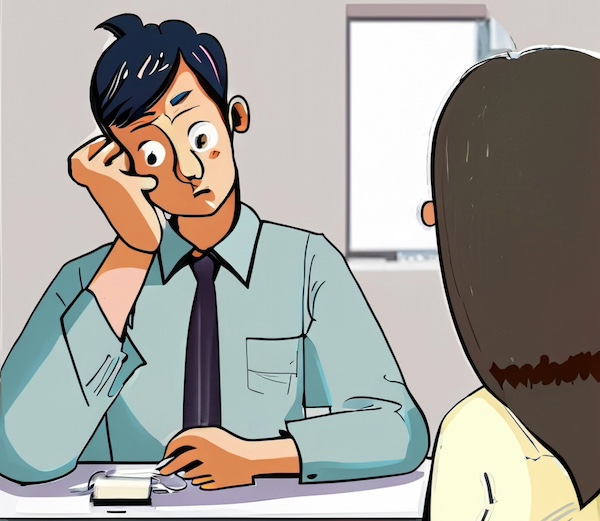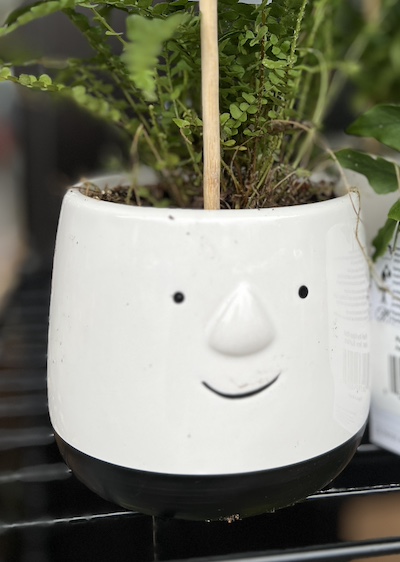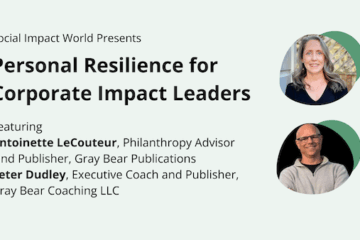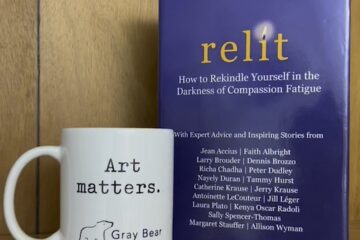About compassion fatigue
For a long time, I understood the idea of compassion fatigue as a concept, but I thought I was immune. I’d never felt it myself.
Then last week happened.
Last week, I met with 20 different clients, half of whom were first-time sessions.
Maybe there’s something different about the holidays, or winter with its darkness and cold, or the self-reflection that comes with the change of the calendar. Whatever it is, the overall tenor of the majority of those calls was different from just a few months ago.
A lot of people are expressing a lack of motivation, an inability to concentrate, and a feeling that they’re not accomplishing as much as they should. Not failure or depression. Just an overall feeling of less.
Meanwhile, because I am a human who has other humans in my life, I also spend some of my non-work time in support of people who are not my clients.
By Saturday, I was not just tired. I was exhausted. And it wasn’t a normal exhaustion. This had a different feel to it.

Compassion fatigue can be a “taboo topic”
I have been thinking about compassion fatigue for a while now. My partner and I are gathering experts to put together a book on the topic, with stories of lived experience as well as practical tips for avoiding and overcoming compassion fatigue.
(If you are interested in contributing, please contact me. We have several great authors but room for a couple more. If you’re interested in hearing when the book comes out, join our mailing list for updates.)
I knew we were onto something when I was talking with a friend of mine who works in healthcare.
I mentioned the book, and she immediately responded, “That is so needed. Compassion fatigue is a taboo topic at the hospital. It’s like we have to deny it exists, even though everyone feels it.”
And, of course, COVID-19 just made that worse.
Virtually everyone may be subject to compassion fatigue
Many professions are subject to compassion fatigue and secondary trauma. Everything from nurse, to therapist, to teacher, to clergy, to veterinarian, to social worker. Even many you might not think of immediately such as public defender, auto mechanic, librarian, journalist, and bus driver.
Add to that list many heart-based roles that are not paid: parent of a special-needs child; caregiver for an aging parent; caregiver for someone with dementia, or a chronic disease, or a disability; volunteer youth coach; community volunteer.
When you spend a significant time caring for others who are experiencing something difficult, it’s only natural to begin to run low on your own motivational fuel. It’s only natural to begin to feel the weight of everyone else’s difficulty.
And it’s only natural to begin to detach. In a way, it’s a self-defense mechanism.
Saturday was a difficult day for me. I didn’t show up for my loved ones the way I wanted to.
And I found that even after a good workout at the gym, I wasn’t refreshed like usual. My brain felt detached. I felt intellectually and emotionally empty. Not depressed. Just… empty.

I ended up lying down “for five minutes” that afternoon, only to wake up over an hour later.
I have a lot of healthy coping mechanisms I can turn to, and I tend to have pretty good resilience. Positivity is always in my top five strengths, and I can find humor in even the darkest situations. I don’t usually have a hard time rallying myself.
And so, with some rest, some time outdoors, and some time spent with good friends on Sunday, I was able to recover and refuel.
When Monday morning arrived, with a calendar even more full than last week, I actually felt prepared and ready to tackle it. (But check with me again on Friday afternoon!)

Give yourself grace, and give everyone else grace, too
There’s a quote that comes across my feed every so often. It’s attributed to so many people that I won’t even attach a name to it.
“Always be kind, because everyone you meet is fighting a battle you know nothing about.”
Too many attributions to list 🙄
If you’re in a support role, whether paid or unpaid, you often know everything about the battles being fought by those you’re supporting.
It’s almost impossible not to take some of that burden onto yourself.
What I found last week was that I was the person fighting a battle I knew nothing about.
It wasn’t until I was able to take a moment, step back, and observe myself that I realized I was suffering from a form of compassion fatigue.
Once I was able to see it and name it, I could start doing something about it.
Being of help is fulfilling but also draining
Another aphorism I pull out from time to time is you can’t pour from an empty cup.
Being in a support role, whether paid or unpaid, can be profoundly fulfilling. I love helping people through tough decisions, and I get a lot of satisfaction from helping people grow and reach their goals.
It can also be draining. The work takes presence, attention, creativity, patience, and a fair amount of intellectual labor.
And sometimes I coach people on situations that echo traumas I’ve experienced in the past, which can cause me to relive some of those feelings later on. Like in the middle of the night, when I should be blissfully asleep.
And that’s why I think this book we’re putting together is so important.
The people in the world who are the beacons of empathy and compassion are bearing a tremendous load for all of us right now.
The world is steeped in division, conflict, and difficulty. We have gone through a pandemic. Two major wars dominate the news. Generational shifts and climate change and economic uncertainty and disruptive technologies are causing global upheaval.
It’s understandable if you have reached your capacity for caring. It’s understandable if you need a break from the news, or from social media, or from whatever caregiving responsibility you have.
And I get it if you are the type to scold yourself and say, “I should be able to just keep going.”
I’m that type. I am proud of my strength and stamina in being able to show up for others.
But I also have limits, and it does no one any good to go beyond those limits. In fact, showing up the wrong way due to fatigue can damage relationships and erode trust.
Last week I hit one of my limits. I am glad I did because even though this week is even more full, I can better prepare for it and better regulate myself along the way.
Because as someone in a helper role, I need to show up just as effective for my 24th client of the week as for my first. Every one of my clients deserves that, and I also deserve not to burn out from the compassion fatigue that can result.
I can help.
I work with top executives and middle managers to improve their leadership skills, their workplace culture, and the effectiveness of their teams. Also, I help individuals identify and achieve their personal goals. Would you like to become more aware, be more effective, be more empowered, and feel fully prepared for your next steps?
You can help.
Think of one person who would benefit from reading this post. Sharing is caring! Forward it to them right now. They will think you’re super smart and well informed.
Stay informed.
Be sure to join my email list! Get notified of new posts here as well as new courses, books, and events from me both here and at Gray Bear Publications.



0 Comments